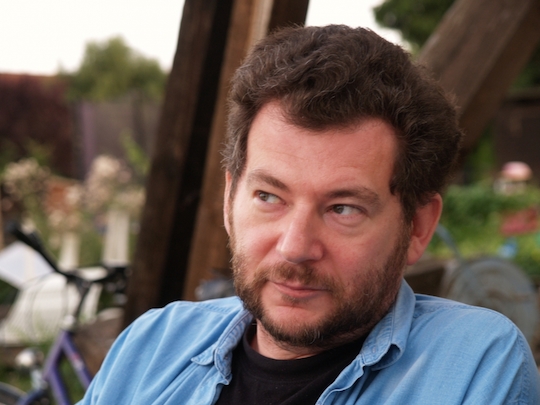You can hear the cheers from here! After widespread outcry and a petition with signatures from the likes of Tom Stoppard, Jonathan Lethem, Salman Rushdie, Susan Bernofsky, and Annie Proulx, the New York Public Library has squashed its plans to do away with the book stacks in its 42nd Street edifice. If you’re outside the New York area, chances are you can still partake in the Worldwide Library, which is finally going digital—not without a hitch, however. READ MORE…
Weekly News Roundup, 9th May 2014: Happy Libraries, Sad Pomegranates

This week's literary highlights from across the world
Issue Spotlight: “Brief Notes on Science”
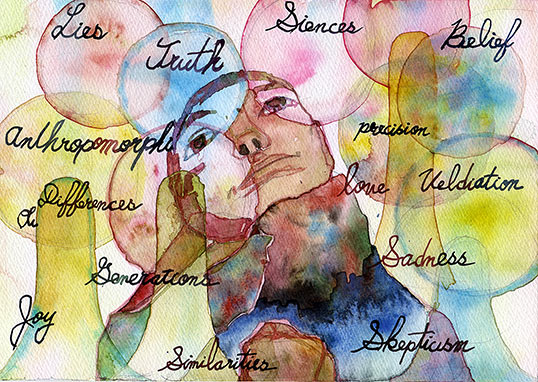
"We have seen how it is originally language which works on the construction of concepts, a labor taken over in later ages by science."
Gonçalo M. Tavares’ “Brief Notes on Science,” translated by Rhett McNeil in our newest issue, is a curious venture into the semantics of scientific enterprise. With wit, insight, and exactitude, the allegorical tries on a technical job: defining and sketching out the surprisingly ambiguous nature (and purpose) of science. READ MORE…
Like the quarterly journal (now open for submissions), Asymptote blog is devoted to publishing creative and critical pieces related to world literature, culture, and translation—which means we love to read and publish original pieces and translations by writers like you. So if you have something to say, read on and get in touch!
A sunny winter in Florence.
Early morning—blue and gold, and
the black Florentine air—eeny meeny miney moe—has completely vanished from the city: and is now wrapping up and flowing down the hills that are more orbital than surrounding.
Above the hills—the still-white night sky slowly turns blue. And between the hills, red Tuscan brushwood burns, which will soon become gold…
The conjoined sky.
The mooing hills.
The well-defined valleys.
The cypresses are like folded umbrellas,
and the stone pines—unfolded.
Under the stone pines and cypresses, Italians brushed the drips from their gray hair in the rear-view mirrors of their own and others’ motor scooters and sang sweetly with voices as hoarse as though they had an Italian three-day stubble.
Untranslating Children’s Nonsense Poems
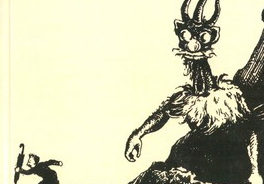
"The Bengali literary mafia would say: 'This is untranslatable.'"
When Indian author Sampurna Chatterji was growing up, she lived between several languages. Her father taught English, while her mother taught Bengali. In Chatterji’s own schooling, the instructional language was English, but she also learned Hindi and Sanskrit.
“All this creates a sort of strange cacophony in the head,” Chatterji said at a professional seminar at this year’s Abu Dhabi International Book Fair, held from April 30 to May 5.
But this “cacophony” also creates wonderful opportunities for linguistic connections. As she developed as a writer, Chatterji decided not to write in Bengali. “The burden of being Bengali was too much for me,” she said. Her teenage rebellion was not to go off and smoke, but to write in English. READ MORE…
Big, big news in translation-land this week: the 2014 winners of Three Percent’s Best Translated Book Award were announced! Asymptote-rs abound: the winner in the fiction category is Seiobo There Below, written by Hungarian author, Asymptote alum, and last year’s winner László Krasznahorkai, translated by Asymptote’s very own (past blog contributor!) Ottilie Mulzet. In the poetry category, Italian poet Elisa Biagini snagged top honors for A Guest in the Wood, team-translated by Diana Thow, Sarah Stickney, and Eugene Ostashevsky: check out Asymptote’s feature here! READ MORE…
In Review: Pitigrilli’s “Cocaine”
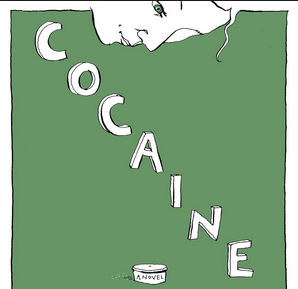
A new translation of Pitigrilli's "Cocaine" is as titillating as its title
It should come as no surprise—if titles mean anything at all, that is—that Pitigrilli’s Cocaine was banned shortly after its 1921 publication. The slim Italian novel is not short on the white stuff, and it doesn’t skimp on the excesses we associate with its sniffing: sex, orgies, general underworld shadiness, all glimmering with the luster that illicit substances (if only through their very illicit-ness) can provide.
To readers in 2014, the novel’s purported depravity may appear mellowed, but Cocaine shocks the system all the same. The real blow in reading this nonagenarian novel, rereleased in a new translation by Eric Mosbacher through New Vessel Press, is its stomach-turning linguistic smarts that elevate this by-turns insightful and nonsensical tale to M.C. Escher-esque levels of depth. Cocaine isn’t about the drug, after all: storming through the not-quite surreal, the book reveals the addictive authority of the words we use.
From the Front Lines of AWP: A Dispatch

Managing editor Tara FitzGerald on meeting the Asymptote community at this year's AWP!
I’d been warned (in jest) about the rain, but the first day of AWP (Association of Writers & Writing Programs) in Seattle dawned bright and clear, and the weather stayed that way throughout my stay. Not that it would have mattered anyway, because my home away from home was the Asymptote table at the AWP book fair, which was safely tucked away inside the Washington State Convention Center. Thousands of writers had gathered at this convention center to hobnob, talk craft, and attend panels during three days of intense book-related activities. From my vantage point at our table, I had the chance to meet around 250 AWP-ers—some of them Asymptote contributors, some editors from other journals, some already our fans, and others simply curious about the journal and what we do here. It was also exciting to hear that at least a handful of them found out about us because they had attended a panel where we were mentioned as the go-to place for international literature.
Hebrew Poetry from Ron Dahan’s Collection “Youth”
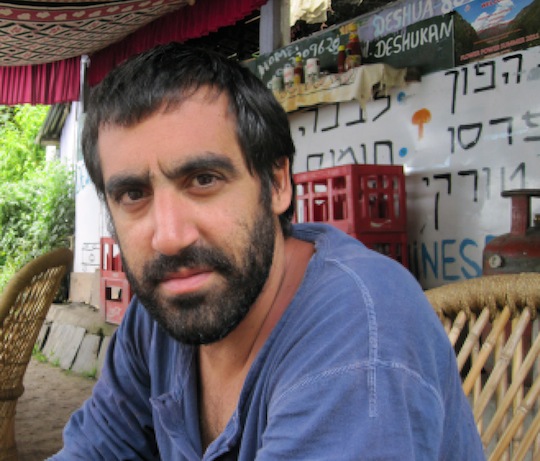
Dahan's portrayals of war and daily life in Israel are stirring: precise yet deftly ambiguous, casual yet anguished
A soda machine burns outside a grocery store
and all the Pepsi and the Coke (diet, too) and the Sprite
Explode in all directions like grenades.
The village of Markabe is burnt and bombed like in a war movie.
And like in a war movie
there’s the guy who carries a heavy jerrycan on his back
and the guy with the cigarette between his teeth
and the guy called Nir
and the guy who’s going to die and doesn’t know it so he allows himself to reminisce about that time when
In Review: Marek Hłasko’s Killing the Second Dog
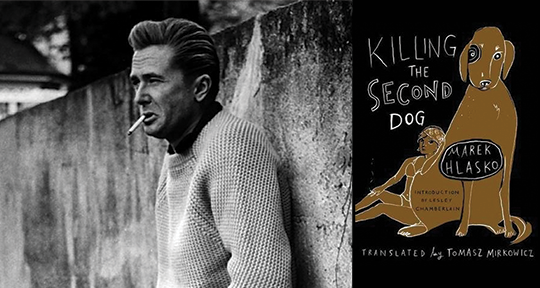
First published in Polish in 1965, Tomasz Mirkowicz's translation of a crime novel set in Tel Aviv is a delight.
Killing the Dog by Marek Hłasko, translated from the Polish by Tomasz Mirkowicz, New Vessel Press, 2014
Marek Hłasko’s novel, Killing the Second Dog, is set in Tel Aviv, but it isn’t any Tel Aviv that I know. Not only the years that separate my Israel (I was born there in 1982) from the novel’s newly independent Israel of the early 1950s account for this lack of familiarity. Nor is it the fact that Killing the Second Dog is, essentially, a crime novel. Hłasko’s Tel Aviv is an identity-less city, where a multitude of languages is spoken and a variety of currencies is exchanged. Still overcoming British rule and catering to the many post-war tourists financing its new path, this Israel offers itself up for grabs, trying, in spite of the suffocating heat and the shoddy infrastructure, to constitute as small an interruption as possible.
The central feeling of estrangement, however, the gnawing discomfort I felt as I read this book, came from the fact that my Tel Aviv, and especially the beach, where the bulk of the novel is set, is nothing if not laid-back. Traffic jams, bad parking, sweltering heat—they all fade into the feeling of a constant vacation, of beers on rickety wooden tables and sooty flip-flop-clad feet.
Hłasko, on the other hand, presents readers with a Tel Aviv that is constructed from bricks of anxiety. In a town cursed by the dry desert wind, Hłasko’s protagonists, Jacob and Robert, are surrounded by lowlifes, criminals and lost souls. Their Israel is one of jail time, seedy hotels, dirty deals and sweaty beds. Jacob is constantly looking for something of his own, but everything he ever has—the dog, his room, a towel—must be shared with another.
The plot is simple. Two Eastern European nobodies are romance con artists. Robert, a former theatre director who believes plays were meant to be performed in real life rather than on stage, writes lines for Jacob, the good-looking one, and with the help of a charming dog (which must be replaced with each iteration of their scheme), they trick rich American tourists into falling in love with Jacob and paying his fictitious debts off so that he may join them in the United States. The money is pocketed, the relationship falls through, on to the next victim.
But the script Robert had come up with is so inventively ridiculous that it creates a circus of sorts on the beachfront: Jacob is to play an angry, miserable and belligerent man in order to win the love of kindly women. In a fit of rage, realizing that he would never be able to join his beloved in America and wanting to hurt her and himself, making him appear cruel and heartless in her eyes, he must shoot the dog, his only possession, and then attempt suicide by swallowing sleeping pills. This is no fraud—the dog is now dead, and on at least one occasion Jacob alludes to, the forged suicide attempt had almost culminated in very real death.
And the most ludicrous part is, by Jacob’s own testimony, the two don’t ever do much with the money they swindle out of the women. Most of it pays for the dog’s food, and the rest is spent on cheap movies and cigarettes. While Jacob laments not having been born rich, while he is plagued with guilt for his lowly way of life and refuses to talk about one of his victims, who, after being admitted to a mental health institution, had killed herself over his betrayal, he never attempts to change his situation. He mentions previous occupations, all leading him in some way or another to serve time in prison. He enjoys conning his own partner, and has no interest whatsoever in finding real love. He is an aspiring actor who hates acting and an aspiring writer who won’t write. He dreams of a room of his own to disappear into with his books. But he, and all the other characters in Killing the Second Dog, know only how to dream, incapable of making their dreams come true. Whenever he stumbles upon a chance for real emotion and true bravery, he makes sure to squash it as best he can. In the book’s touching final scene, Jacob makes a weak attempt to take over the role of director of his own life, but it’s just another meaningless scene in the fiction of his life. In many ways, he is the second dog that must be sacrificed for the show to go on.
Unkempt, unwashed, unpleasant and unethical, Jacob and Robert appear not as the Big Bad Wolves of Tel Aviv. Instead, they read like two empty shells conjuring up the remains of their strength, whatever was left of them after communism and World War II had its way with them back in the home country. We learn little of their personal histories, but enough to know they have been traumatized in ways that, left untreated, lead men to nothing but more violence, more hate. In their pathetic aggressiveness, they manage to overcome readers’ distaste for them and become almost sympathetic.
This feat is greatly thanks to Hłasko’s talent of blending the old with the new in practically imperceptible ways. Bringing up small anecdotes from his characters’ past (“I didn’t learn anything in school. I misbehaved so badly they used to make me stand in a corner with my face to the wall. That was my punishment. You have to admit that under those circumstances I didn’t stand a chance of learning anything. Even the gym teacher would throw me out the door,” “My real father was a good and gentle man who died when I was six”), he accentuates just how empty their present is—their future, most likely, nonexistent. His cool, staccato style is held back for moments when one of the characters lets slip a sentimental run-on statement, puncturing a reader’s seemingly already-made-up mind.
Tomasz Mirkowicz has created a translation simultaneously exotic and familiar, resulting in a sense of pleasant disorientation. Without explaining too much about the time and place, avoiding the temptation toward footnotes, he serves English readers the colloquial style of dialogue and narrative in an easy, palatable and familiar way, only to then surprise them with a punch of that delightful strangeness, which is often the most pleasurable part of reading translated work. This is a novel that will haunt me, like a dog.
***
Yardenne Greenspan, Asymptote editor-at-large for Israel, has an MFA in Fiction and Translation from Columbia University. In 2011 she received the American Literary Translators’ Association Fellowship. Her translation of Some Day, by Shemi Zarhin, was chosen for World Literature Today’s 2013 list of notable translations. Yardenne’s translations include work by Rana Werbin, Gon Ben Ari, Nahum Werbin, Vered Schnabel, Kobi Ovadia, Yirmi Pinkus, Ron Dahan, Alex Epstein and Yaakov Shabtai. Her fiction, essays and translations have been published in Hot Metal Bridge, Two Lines, Words Without Borders, Necessary Fiction, Agave, World Literature Today, Shelf Unbound and Asymptote, among other publications. She is currently working on her first novel.
Weekly News Roundup, 25th April 2014: Gabo and Shakira, Books and Roses

This week's literary highlights from across the world
Strong voices in poetry and protest, remembered: this week marked the unfortunate loss of two poetic voices in protest. Romanian poet Nina Cassian sought exile in the United States after her poems satirizing the Romanian regime stepped on too many toes. Doris Pilkington Garimara exposed systematic injustice toward the Aborigines in Australia most famously through her book, Follow the Rabbit-Proof Fence. It may have happened last week, but the literary world is still reeling from the death of Colombian writer Gabriel García Márquez. In the New York Times, Michiko Kakutani remembers García Márquez’s memory while Salman Rushdie asserts that Gabo was “the greatest of us all.” We might see more from him, still: an unpublished excerpt, En Agosto nos Vemos. Or step back in time and read the magical realist’s profile on fellow Colombian pop sensation, Shakira. READ MORE…
It’s hard to say just how your favorite songs become your favorite songs, but it shouldn’t be hard to understand that sometimes our favorites are also immensely popular. We are not unique snowflakes, at least not when it comes to pop music, and sometimes (as previous iterations of this column have tried to show) we aren’t even that different from people across borders, seas, and continents.
A good song travels at the speed of radio waves, taking up residence in ears wherever, whenever. Folk songs have traveled best of all, passing from porch to porch or from prayer-bench to prayer-bench, until the likes of Alan Lomax and the Greenwich Village folkies recorded and spread these tales like acoustic wildfire. READ MORE…
Asymptote Editor and Contributor News, April Edition
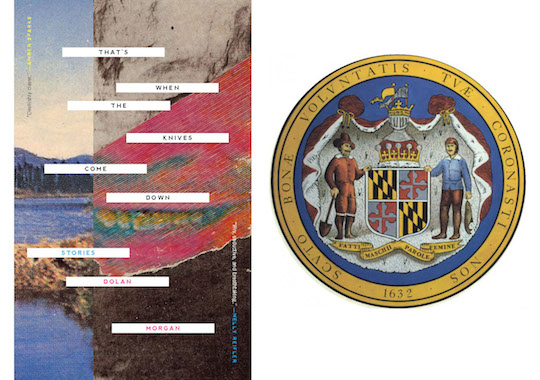
Productive as ever, Asymptote's phenomenal editors and contributors continue to shake up the literary world
Contributor News
Dolan Morgan’s short story collection, That’s When the Knives Come Down, is now available for presale. Eric Nelson writes in Electric Literature that the “unparalleled voice of this debut is surely one that will be copied, but not replicated by future writers,” and other critics have called the work “devlishly clever” and “wry, seductive, and breathtaking.” Read the work’s synopsis, and watch its trailer for a preview of the work’s humor and surrealism.
Contributors to our very first issue Efe Murad and Sidney Wade have won the first annual Meral Divitci Award for their translation of The Selected Poems of Melih Cevdet Anday. Stay tuned: we hear that the book will be released next year.
Bitter Oleander Press also has a new release from Asymptote contributors John Taylor and José-Flore Tappy. Sheds/Hangars is a bilingual volume that collects all of José-Flore Tappy’s poetry to date for the first time in English translation. We can’t wait to read this work, which translator Taylor previously discussed in Asymptote’s January 2012 issue (as it turns out, Taylor’s essay became a substantial part of his introduction).
Italy’s MART (Museum of Modern and Contemporary Art of Trento and Rovereto) presents the work of Sherman Ong, guest artist for Asymptote’s July 2011 issue, in a new exhibition called “Lost in Landscape,” dedicated to contemporary landscape and its many meanings. Ong is shown alongside Marina Abramović, Agnès Varda, and Michael Wolf in this important show—so don’t miss out!
Marcel Schwob’s “Mimes” – Prologue, Mime I
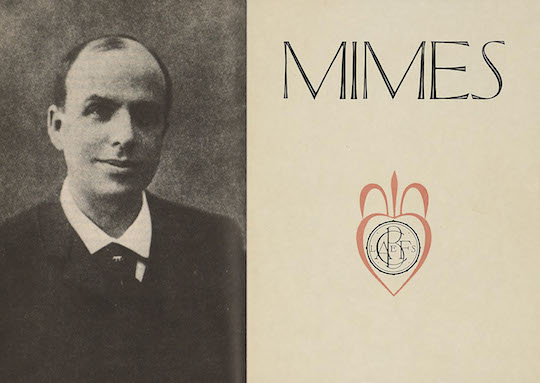
Post one of Asymptote Blog's serial translation of a hallucinatory, undiscovered French work by a revered fin-de-siècle author
Read all the posts in Asymptote’s “Mimes” translation project here.
“We rarely live our own life with pleasure. We almost always try to die of a death other than our own.” – Marcel Schwob, Spicilège
“Nous vivons rarement avec plaisir de notre vraie vie. Nous essayons presque toujours de mourir d’une autre mort que la nôtre.”
Marcel Schwob, a Jewish French writer beloved by Alfred Jarry, Jorge Luis Borges, and Michel Leiris, was born in 1867 and died at an early age in 1905. Scholar of ancient Greek and Latin literature, translator of Robert Louis Stevenson and Thomas De Quincey into French, specialist in fifteenth-century French literature (especially the poetry of outlaw poet François Villon)—Schwob steeped himself in the literature of the past while defying countless literary and philosophical boundaries in his own works. From Le Livre de Monelle, recently translated into English by Kit Schluter, which so influenced Michel Leiris that Leiris called reading it a “capital event” and based an episode of Aurora around it (Oeuvres, 17), to Schwob’s inquiry into the nature of argot, Schwob’s works mark an unprecedented, important turn in the history of French literature.


